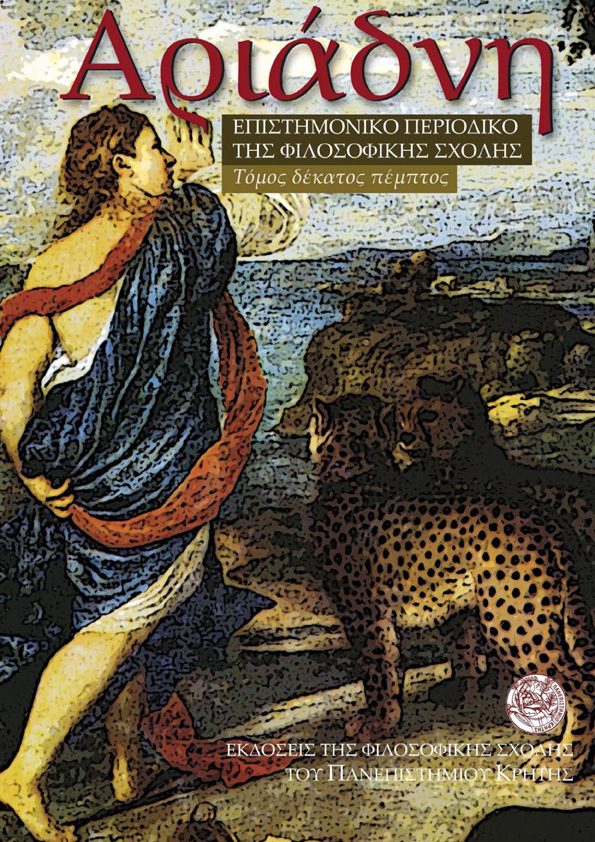The fall of the fourth wall: Vasilis Rotas and his views οn the art of acting
DOI:
https://doi.org/10.26248/ariadne.v15i0.922Abstract
ΤΗΕ ΑΙΜ OF THIS PAPER is to present Vasilis Rotas' theoretical views οn acting, views which he developed in the period from the late 1920s until the 1960s. His central theoretical locus can be summarised as the idea of stylising and idealising the actor's movements and words, resulting in the spectator's theatrical illusion being shattered. This practice placed him in total contrast with realistic acting methods. The anti-realistic conventions which Rotas favoured brought him close to the similar views of innovative European directors from the first half of the 20th century such as Α. Lugne-Poe, Ε. G. Craig, V. Meyerhold, J. Copeau, F. Gemier, and J. Vilar. However, his main difference from these directors (especially Lugne-Poe and Craig) lay in his ideological approach since Rotas did not accept the metaphysical nature of theatre but instead the pragmatic teachings of the critical dialectical method which emerged from it. Consequently, he supported anti-illusionary formalistic and alienation-effect techniques, but his ideological objectives were similar to those of the dialectics of historical materialism and didactic - entertainment-focused populist theatre, which was an approach taken by Bertolt Brecht at that time. Rotas is a sui generis case of an artist with a materialistic worldview, who managed, however, to break free of the realist - materialist identification, by following artistic paths which were thought to be formalistic by supporters of Socialist Realism.
Downloads
Published
How to Cite
Issue
Section
License
Authors retain copyright and grant the journal right of first publication with the work simultaneously licensed under a Creative Commons Attribution-NonCommercial-ShareAlike 4.0 International License that allows others free use of the work for non-commercial purposes as long as the author/s and the journal are attributed properly and the new creations are licensed under identical terms (Creative Commons Attribution-NonCommercial-ShareAlike 4.0 International License).


